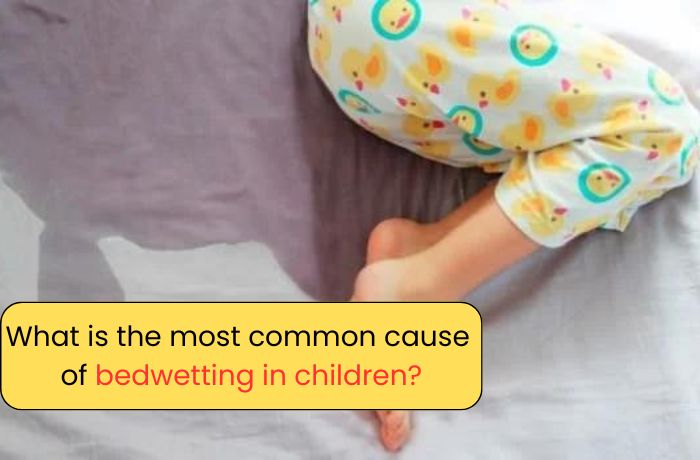Bedwetting, medically known as nocturnal enuresis, is a common condition in children. It can be a source of stress for both the child and the parent. Understanding the causes of bedwetting is essential to effectively treating and managing the condition. In this blog, we will examine the most common cause of bedwetting in children, along with other contributing factors, to provide a complete overview of the issue.
Bedwetting is defined as involuntary urination during sleep in children over the age of five. It is a common condition, with many children experiencing it at some point in their early years. While it often goes away on its own, persistent bedwetting may indicate underlying problems that need to be addressed.
The Most Common Cause of Bedwetting in Children
The most common cause of bedwetting in children is developmental delay. This means that the child’s bladder is not fully developed to hold urine throughout the night. In many cases, children who wet the bed are simply slower to develop bladder control than their peers. Here are some important things to consider:
1. Bladder maturity: Some children’s bladders take longer to develop the ability to hold urine all night. This is a natural stage of development that many children outgrow as they get older.
2. Deep sleep: Some children who wet the bed are deep sleepers and do not wake up when their bladder is full. This may be due to differences in sleep patterns and arousal thresholds.
3. Hormonal factors: A deficiency in the nighttime production of antidiuretic hormone (ADH) can lead to increased urine production during sleep, contributing to bedwetting.
Why Does Delayed Bladder Maturation Occur?
1. Genetic factors: Bedwetting often runs in families. If one or both parents had bedwetting as a child, their child is more likely to have it. This suggests a genetic component to the development of bladder control.
2. Developmental differences: Children develop at different rates. Some may achieve bladder control earlier, while others may take longer. This variation is completely normal and part of an individual’s growth pattern.
3. Small bladder capacity: Some children may have a smaller bladder capacity, making it more difficult to hold urine throughout the night. As the bladder grows and its capacity increases, bedwetting episodes typically decrease.
How to Identify The Cause in Your Child
Identifying the specific cause of your child’s bedwetting involves observing his or her patterns and possibly seeking medical advice. Key signs include
- Frequent bedwetting after age 7
- Accidents during the day
- Painful urination or unusual thirst (which
- may indicate a medical condition)
- Stressful events in your child’s life
If you are concerned about your child’s bedwetting, see a pediatrician to rule out medical conditions and discuss possible treatments.
Conclusion
Bedwetting is a common and usually transient condition in children, with delayed bladder maturation being the most common cause. Understanding the underlying factors and providing appropriate support can help to manage bedwetting effectively. With patience, encouragement and, if necessary, medical intervention, most children will outgrow bedwetting and develop normal bladder control as they grow older.
Parents seeking professional advice on bedwetting and other pediatric concerns should consider consulting Dr. Mandar Kale, a pediatrician in Moshi. Dr. Kale is experienced in a wide range of child health issues and can provide the guidance and support needed to effectively manage bedwetting.


